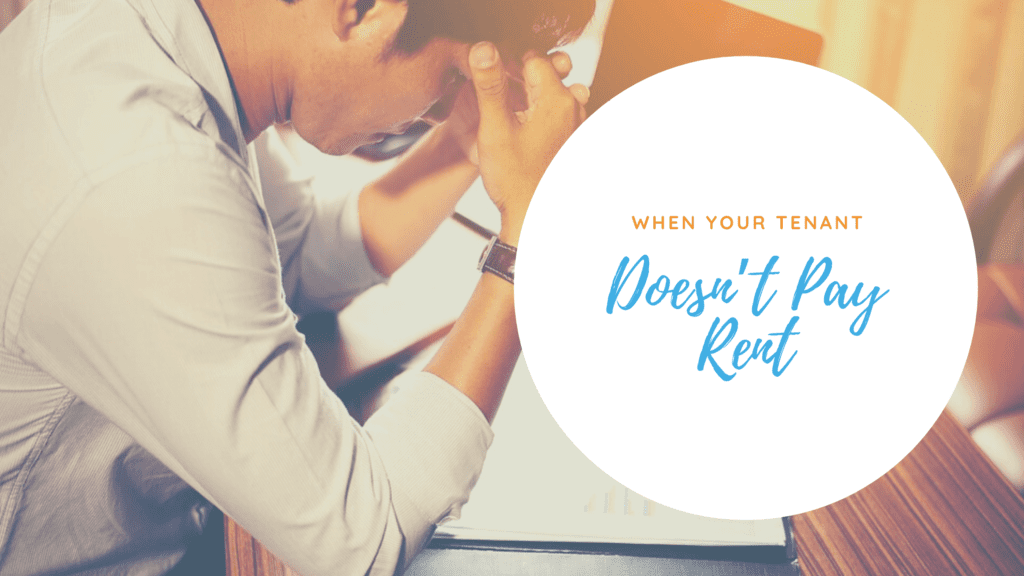
Owning an investment property and running a successful rental business can be a fulfilling experience. However, like any business owner, you may have to deal with unanticipated situations and experience be ready to deal with financial ups and downs. Non-payment of rent by the tenants is one such situation that disrupts the owner’s cash flow.
You may wonder what should be done when your tenant doesn’t pay rent. Should you directly initiate eviction? Or, are there any other steps that can be taken prior to that?
Following are some of the first steps you can take when your tenant doesn’t pay rent, rather than directly evicting your tenant.
Check your Lease Agreement / Rental Policy to Ensure that No Rules Have Been Violated
It is critical to add detailed terms and clauses related to the rent collection in the lease agreement. Some of these essentials are:
- The amount of rent.
- The rent due date.
- The late fees for the late rental payment.
- The mode of payment.
- Penalty, if the check bounces.
- The consequences of delayed or missed payments like termination of lease.
Communicate With Your Tenants About the Consequences of Non-Payment of Rent
Effective communication is essential to sustain your landlord-tenant relationship. Instead of simply sending notices to your renter, you should ask the renter the reason for the delay, especially if they are otherwise regular in their payments. They may be going through a crisis or facing some sudden event/emergency, such as an accident in the family. If there is a genuine reason, you can work out some way to clear the payment later. Otherwise, you can proceed with the next steps in your eviction process.
Send a Late Rent Notice
If the tenant fails to communicate the reasons behind the delayed payment, you can send them a written notice. This should include the amount of rent that is due and should warn them that further legal action will be taken in case they continue to default on their payment. The notice works as a warning letter and will serve as proof in case the matters go to court.
Send a Pay or Quit Notice
If the tenant fails to pay the rent or does not respond even after receiving a late rent notice, you can send them a pay or quit notice through email or paste a copy of this on the main door of your Merced rental home. The latter reminds the renter of the due rent every time they step in or out of the house.
This notice should allow them three days to either pay the rent or leave the property. If they still fail to process the payment, you may have to initiate eviction.
Proceed With the Eviction Process
After the pay or quit notice period ends, you can start with the eviction process if there is no sign of rent or any clear communication from the tenant’s end.
To evict the tenant from your property, you will have to take the matter to the court and win the eviction lawsuit. Inspect the property to check if there are any serious damages, as the costs for these damages must be claimed from the tenant.
You will need evidence to prove that you have followed the rules related to sending notices and to demonstrate that the occupants have damaged the property.
Additionally, there are several things that you will have to take care of, like, following the state and federal laws and paying the legal fees for the completion of paperwork. However, you don’t have to manage everything by yourself. A property manager can be very helpful in such testing times. They can guide you step-by-step, maintain the documentation, and lead you to the right lawyer who can make your eviction process as easy as possible.
 River Drive Properties is an experienced and trusted property management agency in Merced, to take care of your rental investment and help you with the eviction process. In addition, we also provide complete property management services, including tenant placement and rent collection. For more information, contact us at River Drive Properties.
River Drive Properties is an experienced and trusted property management agency in Merced, to take care of your rental investment and help you with the eviction process. In addition, we also provide complete property management services, including tenant placement and rent collection. For more information, contact us at River Drive Properties.

 Denise Turner
Denise Turner Joseph Cox
Joseph Cox Audrea Tuhn
Audrea Tuhn Michael Richter
Michael Richter Melissa Balderama
Melissa Balderama Xay Her
Xay Her Robin Espinoza
Robin Espinoza Julio Anaya III
Julio Anaya III Clifford Uyeno
Clifford Uyeno Edith Zuniga
Edith Zuniga Itzel Ruelas
Itzel Ruelas Sandra Gaylord
Sandra Gaylord Crystal Taffoya
Crystal Taffoya

 Brandon Waters CMCA®, AMS®
Brandon Waters CMCA®, AMS® Diondra Williams
Diondra Williams Rachel Perez
Rachel Perez